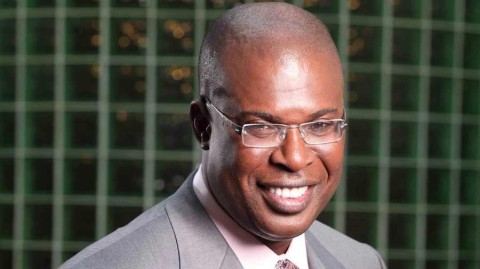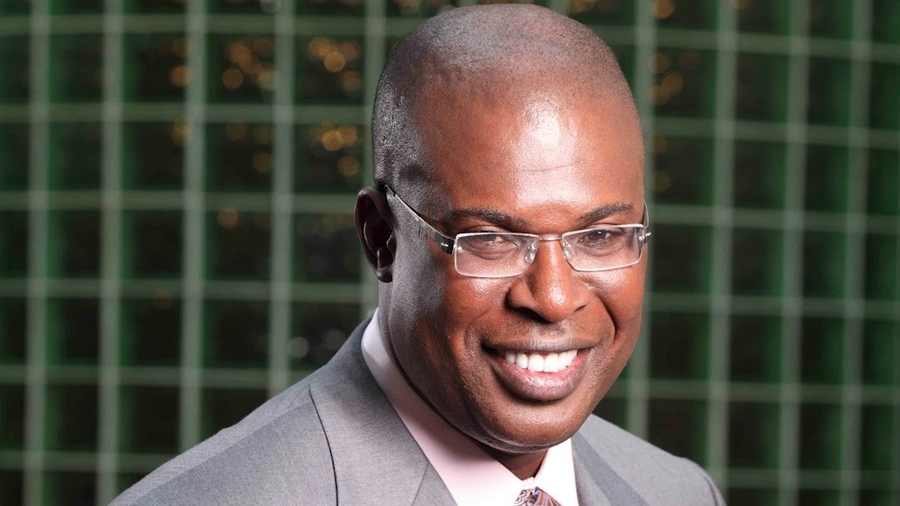
On Monday, 07 July 2014, Chief Timipre Sylva turns 50. It is a milestone mark for which glory and honour must be given to the good Lord.
As a mark of respect for the Muslims who are observing the Holy Month of Ramadan, there will be no elaborate celebrations this Monday. However a small committee, comprising family, friends and political associates, is putting together a public lecture in his honour in Abuja. The lecture, titled, “The Challenge of Democratic Governance”, has been slated for mid-August. It is to be delivered by the Lagos State Governor, Mr. Babatunde Raji Fashola (SAN), under the distinguished chairmanship of former Chief Justice of Nigeria, Justice Mohammed Lawal Uwais (rtd.).
The occasion of Sylva’s golden jubilee presents another opportunity to reflect on the political profile of this ever-rising star on the political firmament. A man whose life and politics continues to leave a positive and lasting effect on efforts to expand the frontiers of democracy.
He left the governorship of his native Bayelsa State in January 2012, inexplicably denied a second term ticket by his former party, the Peoples Democratic Party (PDP), in collusion with the presidency under Dr. Goodluck Jonathan. But then, he remains the main issue in the state’s politics. It is either you are for him, as symbolizing the politics of emancipation and progress, or you are against him as representing the politics of collusion and reaction.
On the national scene, rather than diminish in the face of relentless persecution, and in spite of the plots of his traducers, Sylva has continued to rise in political prominence. The zenith was his near emergence as National Chairman of the opposition All Progressives Congress (APC) at the 13-14 June 2014 national convention of the party.
A frontline candidate for the national chairmanship position, Sylva’s decision to step down was the highpoint of the epoch-making convention. Out of personal sacrifice, he had stood down for the greater good of the party and the country, despite being backed by a key segment of the party.
It was a rare act of national sacrifice.
It would be recalled that the former Minister of Education, Obiageli Ezekwesili, had in her keynote paper at the APC summit in March pointed out: “Is it not time for all of our political leaders to pay that utmost sacrifice of leadership – lay down their personal gain for the good of the people they wish to lead? Leadership is not the office, the title, the authority, the mansion one occupies. Leadership is the sacrifice offered that others may thrive.”
That was exactly what Sylva did. He laid down personal gain for the collective good. It did not matter what he got. For him, what was paramount was getting Nigeria back to its feet. The task to facilitate Nigeria’s recovery from its present social and political troubles is one that Sylva is wholly committed to. He demonstrated that commitment by giving up his personal ambition of becoming the APC national chairman, a popular ambition among the party members, in order to serve the greater interest of the party and the country.
Contrary to views that he lost out at the APC convention, he really did not lose anything. He actually gained by deciding to put the collective interest and objective of salvaging Nigeria’s situation above personal gain. This is the quality of a great leader.
While, like many Nigerians, Sylva believes President Goodluck Jonathan did not create Nigeria’s problems, it has become clear to all honest and self-respecting Nigerians that except Jonathan’s tenancy in Aso Rock ends, the country cannot even begin to address its enormous problems of security, corruption, energy, critical infrastructure, national integration, and others.
Sylva’s decision to join APC, contest for the position of national chairman, stand down, and remain a faithful party member, coupled with the persecutions he continues to suffer, has placed him at the centre of Nigeria’s politics. Anyone who seeks to take over power from Jonathan in 2015, therefore, must necessarily see the former governor as a dependable asset.
Admittedly, however, the maltreatments Sylva has suffered at the hands of haters of democracy and free choice are the typical fate of those who turn out to be their peoples’ brightest hopes.
All through history, great leaders in Africa are known to have suffered persecution. Just in May, Mr. Peter Mutharika took the reins of the southern African country of Malawi, despite facing trial for treason, a charge many believe to be trumped up. The late President Nelson Mandela of South Africa lived the most part of his adult life under the shadow of political and legal persecution and incarceration. But at the end, he became South Africa’s first post-apartheid democratic president. Yoweri Museveni also suffered bitter harassment at the hands of Uganda’s past dictators before he became that country’s president.
Back home, the late sage, Chief Obafemi Awolowo, was a victim of serial persecution by elements who wanted to rubbish his political career. They failed, with their harassments even lionising him and helping to endear him more to his people. Former President Olusegun Obasanjo suffered the same fate, when he emerged from an ungodly imprisonment to become the first Fourth Republic president.
What these indicate is that a great political career lies ahead of Sylva. If those who had illegally excluded him from running for an office he was suitably qualified under all our laws to vie, and have continued to persecute him, thought they were destroying his political career, they are daily being proved wrong by the rise and rise of his political profile.
Sylva remains a great patriot as he has always been. In spite of all that was done to him, his faith in democracy has never been shaken. For him, democracy remains the best form of government. He believes people have the right to decide who would govern them.
In Bayelsa State, the leadership Sylva gave to his people has remained unparalleled. Those who persecuted him and used strong-arm tactics against him just to usurp power, rather than govern with all the powers they have, have continued to misbehave and pursue shadows.
At 50, Sylva should certainly be happy with himself, secure in the knowledge that today he stands at the centre of our national politics. For him, the promise of politics is the limitless possibilities it offers humanity to reinvent society on the path of progress and prosperity.
Happy Birthday, great patriot!
–
Mr Buokoribo is Media Adviser and Private Secretary to Sylva
Email: doifiebuokoribo701@gmail.com; Twitter: @doifiebuokoribo







